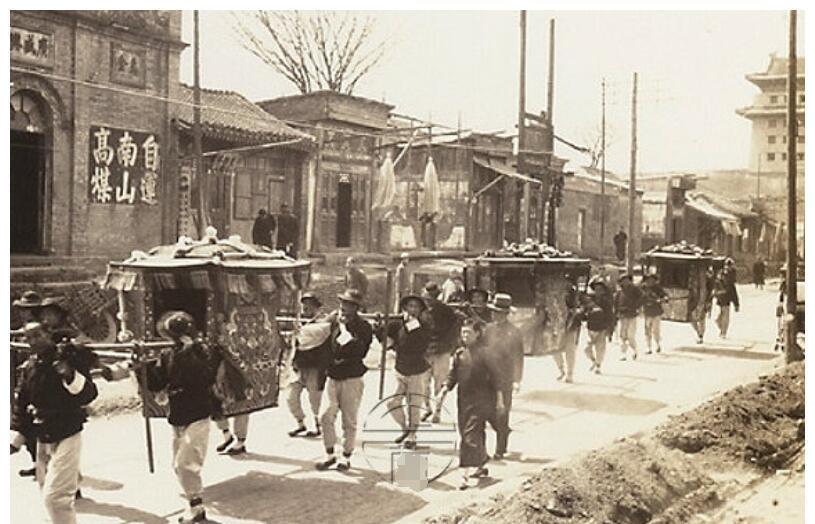Beiyang Great Era Morality Chapter (371) Zi Non Fish, Anzhi Fish Joy.
In the chaotic and chaotic world of the late Qing Dynasty and the beginning of the People's Republic, productivity was so low that Qing officials generally traveled in sedan cars? In fact, the officials of the three products could not afford to sit down, so they sat in a palanquin and became the proud capital of the officials and masters of the Qing Dynasty. Born out of the mud of the late Qing Dynasty, the Beiyang warlords naturally followed the trend for this enjoyment. Even Liu Zhenhua, the overseer of Shaanxi, who was only considered the "King of Grass Heads," was "kind" to invite Kang Youwei to give lectures for Shaanxi, treat him as a guest, bow down to accompany him, visit scenic spots and monuments in a palanquin, and write poetry inscriptions everywhere. Compared with the three giant warlord groups in Beiyang, the Sichuan warlords who also belong to a small role, although they are from a warrior background, they also prefer to sit in a palanquin rather than ride a horse, like the Sichuan warlord Lai Xinhui still has to sit in the palanquin to escape when he defeats the battle and retreats, and from time to time he hears someone outside scolding and grinning: "After losing the battle, he still swung his temper, and the sedan blocked the road!" ”

As for the warlord being able to have a palanquin to sit on, this also has to start from the psychological cognition of the palanquin. In the same year that Liu Zhenhua, the bearer of the "Zhensong Army," accompanied "Master Kang" Kang Youwei on a palanquin in Shaanxi province, the British thinker Russell visited Sichuan and witnessed the scuffles of the Sichuan warlords as usual. Russell, on the other hand, has just finished writing his monumental work "The Theory of Happiness", and he hopes to use his own thoughts to achieve the purpose of educating and guiding the masses to get rid of suffering. It was summer, and the weather in Sichuan was very muggy. Russell and the few people accompanying him sat on the bamboo palanquin carried by the two of them to Mount Emei. The mountain road was very steep and steep, and several caravans were tired and sweating. As a thinker and writer, Russell was in no mood to enjoy the landscape of Mount Emei, but to think about the mood of several caravans.
In his opinion, the caravans must have hated several of their people who sat in the sedans, and in such hot weather, they had to carry them up the mountain. They may even be wondering why they are the ones carrying the sedan and not the people who take the sedan. While Russell was thinking, he reached a small platform on the mountainside, and the accompanying man asked the sedan to stop and rest. Russell got out of the bamboo palanquin and carefully observed the sculptor's expression. He saw the sedans sitting in a row, taking out their pipes, talking and laughing, talking about very happy things, without the slightest sense of complaining about the weather or the people in the sedans, nor at all feeling sad about his fate. They also funnily told Russell jokes about their hometown, and although Russell didn't know what to do, he was curious to ask Russell about something. They laughed happily from time to time during the conversation. Russell told the story in his essay "The Character of Chinese."
Eventually, he came up with a famous view of life: "It is wrong to look at the happiness of others with a self-righteous eye." Therefore, the person who sits in the palanquin is not necessarily happy, and the person who carries the palanquin is not necessarily not happy, the key is to see how the individual understands happiness. In fact, all this is just a kind of self-deception and insensitivity of the general public in the environment at that time. For them, the happy life of these old masters sitting on palanquins is completely incompatible with their cognition, they are just a continuation of the knowledge of "slave talents" since the Qing Dynasty, as if there are many scenes between heaven and earth, which can only be seen by closing their eyes, such as dreams.
References: History of the Beiyang Warlords, Zhuangzi Qiushui, Chinese Character, The Way of Celebrities